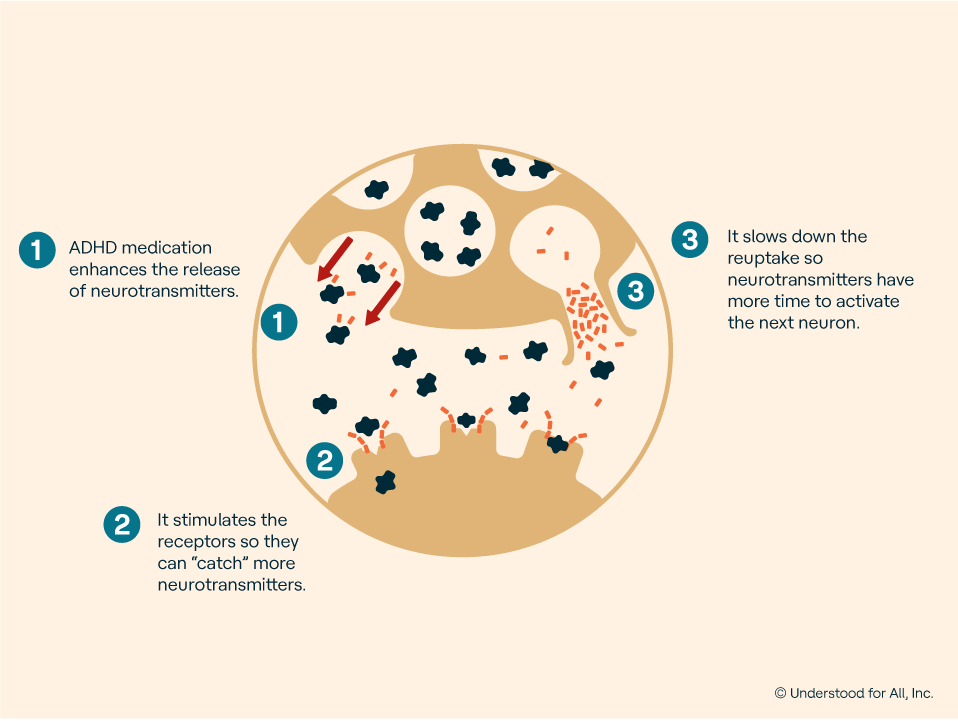The Advantages of Tailored ADHD Therapy Prepare For Better Outcomes
The application of individualized ADHD therapy plans has emerged as a crucial approach in enhancing therapeutic outcomes for people affected by this problem (ADHD treatment). By identifying the distinct manifestations of ADHD in each individual, these personalized treatments promote higher involvement and motivation, ultimately leading to much more efficient coping strategies.
Recognizing ADHD Variability
Although Attention-Deficit/Hyperactivity Problem (ADHD) is commonly viewed as a singular problem, its manifestations can differ considerably amongst people. This variability is affected by a series of elements, including age, gender, coexisting problems, and ecological contexts. Kids with ADHD may show hyperactive behaviors, while grownups may primarily battle with focus deficits. Gender distinctions likewise contribute, as men are much more regularly identified with ADHD and commonly show more overt signs and symptoms, whereas women may offer with much less evident inattentiveness.
Additionally, people with ADHD may experience a spectrum of psychological and behavior challenges, such as stress and anxiety or oppositional defiance, that can complicate medical diagnosis and therapy. The communication of these elements can result in diverse experiences of ADHD, requiring a nuanced understanding of the condition. It is likewise worth noting that ADHD can offer in different ways throughout various cultural contexts, affecting exactly how signs are identified and resolved. This understanding highlights the value of acknowledging ADHD as a complex problem, which requires individualized approaches to treatment that consider the one-of-a-kind demands and experiences of each person.
Secret Components of Customization
Individualized ADHD therapy strategies are grounded in numerous key elements that ensure reliable administration of the disorder. A detailed evaluation is important, including standardized score scales, interviews, and behavioral monitorings. This extensive evaluation allows clinicians to recognize the individual's unique signs, strengths, and challenges.
Second, the involvement of multiple stakeholders, consisting of parents, instructors, and the individual, adds to an alternative view of the person's needs. Cooperation cultivates an encouraging atmosphere that can adapt to the person's context and way of living.
Third, therapy strategies should be flexible and versatile, permitting for modifications based on ongoing responses and the individual's developing needs. This versatility makes it possible for the combination of different restorative strategies, such as behavioral interventions, psychoeducation, and medication management.
In addition, cultural and contextual aspects must be considered. Recognizing the individual's background, values, and choices makes sure that the therapy is appropriate and respectful.
Last but not least, normal follow-ups and assessments are important to monitor development and make required modifications. By focusing on these vital components, personalized ADHD treatment strategies can considerably improve the performance of treatments, resulting in improved results for people with ADHD.
Enhanced Involvement and Motivation
To successfully advertise enhanced engagement and motivation in people with ADHD, it is important to integrate approaches that reverberate with their passions and strengths. Individualized therapy plans that line up with an individual's interests can cause boosted participation in therapeutic activities, fostering a feeling of ownership and enthusiasm for the procedure.
Utilizing interactive and imaginative strategies can likewise significantly improve motivation. For instance, integrating gamification components or real-world applications of skills can make tasks more attractive and relevant. This not only records interest yet likewise strengthens learning with delightful experiences.
Furthermore, establishing attainable and significant goals customized to the individual can bolster motivation. When people see their development towards directly significant objectives, they are much more most likely to continue to be involved. Routine feedback and recognition of success can additionally sustain motivation, creating a positive comments loophole that motivates continued effort.
Lastly, cultivating a helpful atmosphere where people feel recognized and valued can dramatically affect their involvement degrees. When therapy strategies are established collaboratively, including input from the person, they are more likely to feel purchased their trip, ultimately resulting in improved end results in taking care of ADHD.
Improved Coping Approaches
Establishing enhanced coping approaches is crucial for people with ADHD, as it equips them with efficient devices to browse day-to-day obstacles. An individualized treatment strategy permits the identification of details coping mechanisms customized to the person's one-of-a-kind requirements and situations - ADHD treatment. Methods such as mindfulness, time monitoring abilities, and organizational approaches can be integrated into everyday routines, promoting a feeling of control and minimizing anxiousness
Mindfulness methods, including reflection and deep-breathing exercises, help people with ADHD focus their attention and manage their feelings. Time administration techniques, such as making use of timers or breaking jobs into smaller, manageable actions, can alleviate sensations of bewilder. Additionally, organizational devices like coordinators and checklists can enhance effectiveness and liability.
Long-term Favorable Outcomes
Carrying out customized ADHD therapy plans can cause significant long-term favorable results for people. These tailored strategies, which take this website into consideration special signs and symptoms, preferences, and life situations, assist in extra efficient management of ADHD signs and symptoms in time. By concentrating on the certain demands of the individual, these strategies enhance adherence to treatment methods and foster better interaction in therapeutic activities.

Moreover, tailored therapy strategies can considerably reduce the risk of comorbid conditions, such as anxiousness and clinical depression, which are commonly connected with ADHD. Early treatment and consistent assistance help individuals construct strength and coping methods, advertising general mental health and wellness.
Eventually, the long-term favorable outcomes of tailored ADHD treatment intends not just boost the lifestyle for individuals yet likewise add to their total wellness and success in numerous websites life domain names. This alternative method highlights the importance of personalized treatment in handling ADHD properly.
Verdict
